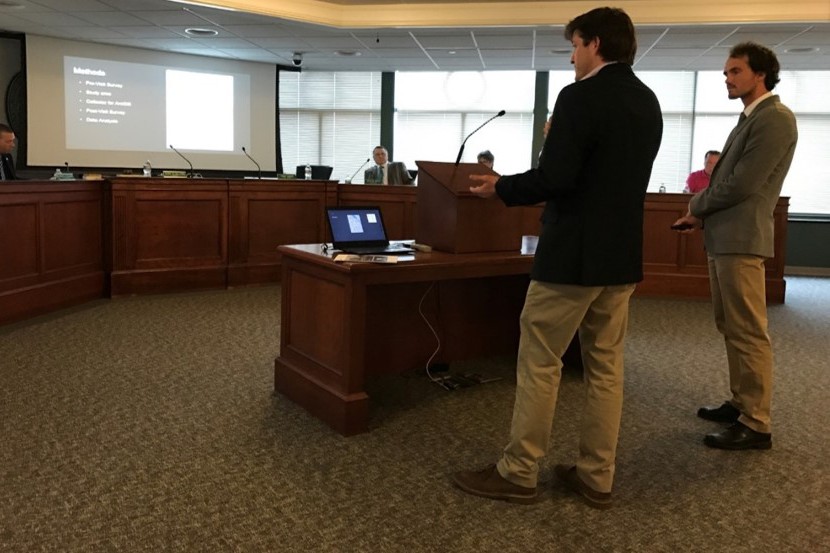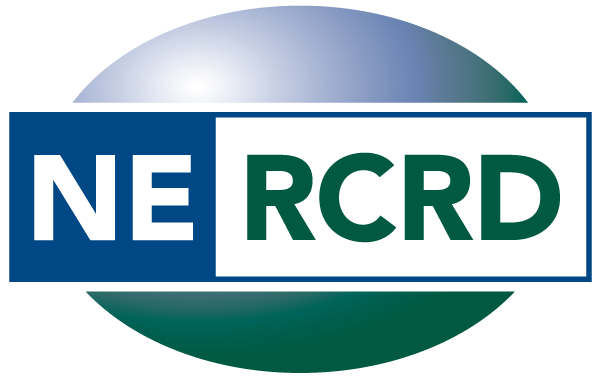
Engaging students in the First Impressions process at the University of New Hampshire
We caught up with Hancock to learn more about how the partnership worked.
In 2015, West Virginia University Extension provided First Impressions (FI) training to Extension staff in four other states with funding from NERCRD. Since then, several members of the group have implemented the program in their own states, innovating and adapting the program to address their unique circumstances. In New Hampshire, Casey Hancock and Geoffrey Sewake of UNH Extension implemented the program in two NH communities using the FI community-exchange model, and found building the community capacity required to conduct FI assessments to be a challenge. When Hancock learned that the Planning Student Organization was looking for a new project last fall, she pitched the idea of students carrying out FI assessments to the club’s advisor, Mary Friedman, Program Coordinator for the Community and Environmental Planning program.
“I showed her sample reports from the community exchange we had just completed in Rochester and Littleton, and she was on board,” Hancock said. Next, Hancock took the idea to the students and was met with enthusiasm. Over the course of several subsequent meetings, Hancock provided training to 6-8 students. The training ranged from how to conduct the assessment–which she said was similar to training community volunteers–to how to use the app that she and her colleagues adapted for First Impressions data gathering. She and Friedman identified potential communities to evaluate, and Friedman reached out to the planning staff of Somersworth, NH, who supported the idea.
The students conducted their assessment of Somersworth in November 2016. In the following semester, Hancock trained them on qualitative data analysis, coached them through cleaning and coding their data, and supervised the writing of the report. Initially, the group presented their findings to the Somersworth staff planner, who provided valuable feedback and got them a spot on the Somersworth City Council calendar.
For the students–all of whom were majoring or minoring in the Community and Environmental Planning program–presenting to the City Council gave them another opportunity to draw on their academic knowledge. For example, when the council discussion turned towards attracting Millennials vs. older adults, the students offered some evidence from the literature to inform the discussion.
“One of the students said, ‘Actually, what we’ve learned in our planning classes is that the things that make a community vibrant to a Millennial are the things that older and aging adults want, too–like a walkable community, access to a library, access to restaurants and shops, all without a car’,” said Hancock. “It was kind of an eye-opener for the Council that if they want to keep aging adults in their community, they might want to make some of these changes that will also appeal to Millennials.”

The students also presented their findings in a poster session at the UNH Undergraduate Research Conference (PDF of poster). Their hands-on experience conducting assessments, analyzing data, and presenting their findings will no doubt help round out their resumes. The project was a win for Extension, too. Hancock explained that engaging students in the FI process allows for the assessment of one community at a time. The community-exchange model, on the other hand, requires two communities, which is inherently challenging in a small state like New Hampshire.
Led by students who participated in the First Impressions program last year, the Planning Student Organization is currently conducting a First Impressions assessment of the City of Dover. The Extension Community and Economic Development (CED) team looks forward to partnering with the Planning Student Organization in the future to complete additional First Impressions assessments. This is one example of the many ways that UNH Extension’s CED team is engaging students.
More information about the team’s work
More information about the First Impressions programming underway in the Northeast
